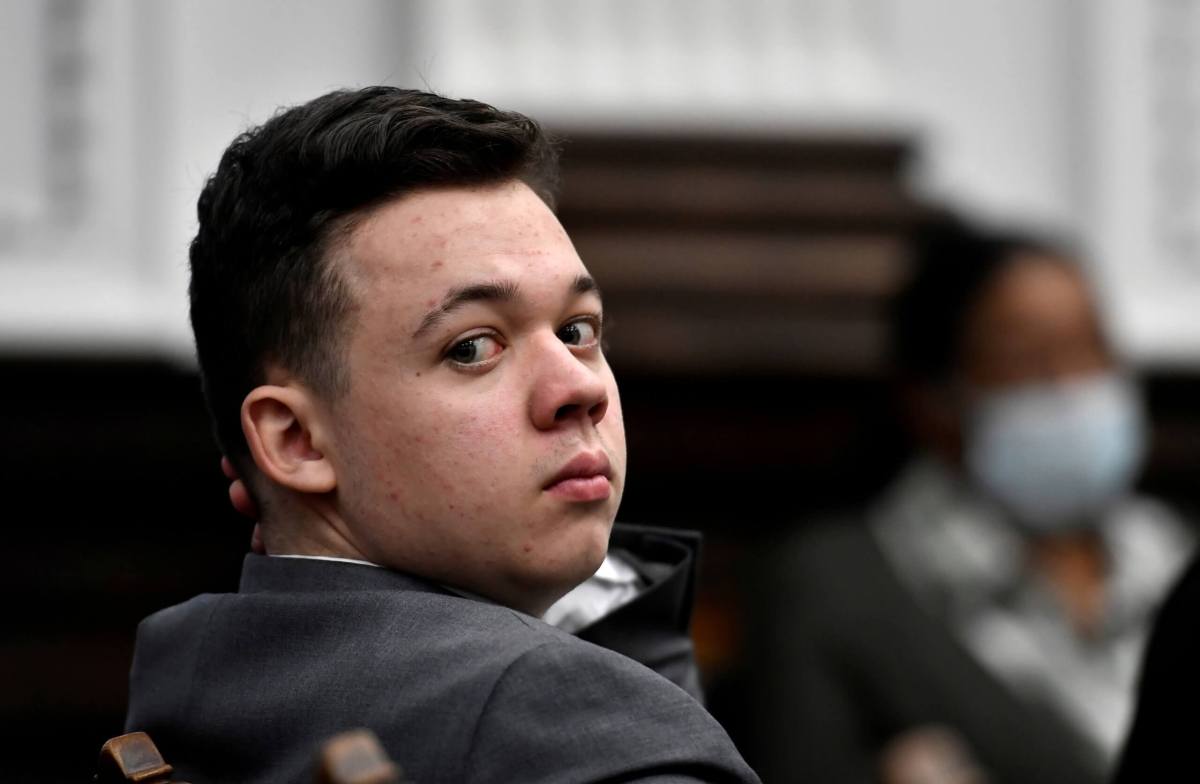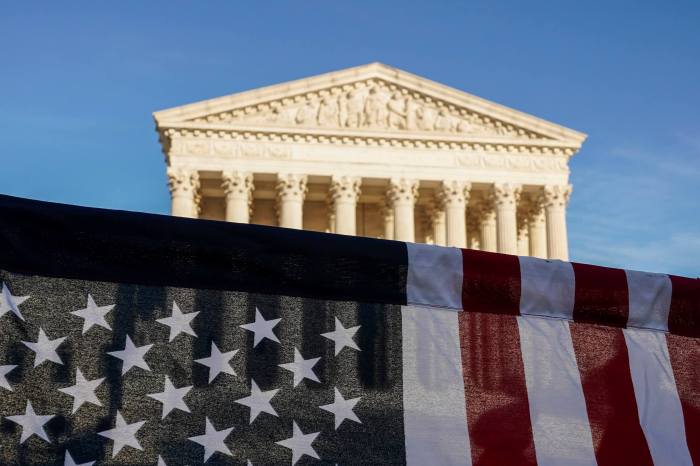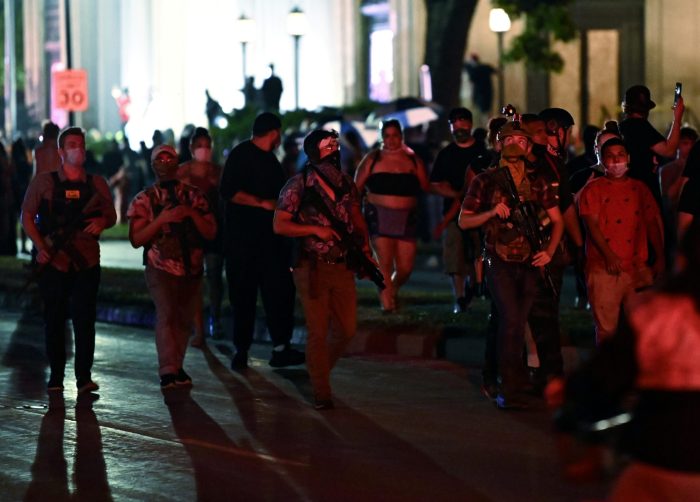The judge in the Wisconsin murder trial of Kyle Rittenhouse on Monday dismissed a misdemeanor charge against the teenager for illegally possessing the AR-15-style rifle he used to shoot three people, killing two, citing vagueness in the law.
In dismissing the charge, Judge Bruce Schroeder sided with the defense’s argument that there were exceptions in the law that appeared to allow for Rittenhouse, who was 17 at the time of the shootings, to possess the semi-automatic rifle.
While a misdemeanor charge, its dismissal carries symbolic significance for a case that has captured the attention of the public in part because it involved a teenager roaming the streets with a semi-automatic rifle who was not immediately brought into custody by the police in Kenosha, Wisconsin.
It is the most closely watched trial involving a civilian’s right to self-defense since George Zimmerman was acquitted in the fatal shooting of Trayvon Martin, an unarmed Black teenager, in 2013.
Like Zimmerman, Rittenhouse has emerged as a divisive figure, viewed as heroic by some conservatives who favor expansive gun rights and as a symbol of an out-of-control American gun culture by many on the left.
The defense had argued that under a strict reading of the relevant Wisconsin legal statute a person could carry a rifle at age 16 or 17 as long as it was not considered short-barreled, and prosecutors on Monday conceded the barrel of the gun used by Rittenhouse was long enough not to fall into that category.
“It ought to have been mighty clear that I had big problems with this statute. I have made no bones about that from the beginning,” Schroeder said, before ruling on the sixth and only misdemeanor charge. “Count 6 is dismissed.”
Rittenhouse, 18, is charged with killing Joseph Rosenbaum, 36, and Anthony Huber, 26, and with wounding Gaige Grosskreutz, who turned 28 this month, in Kenosha on Aug. 25, 2020. The shootings took place during protests – marred by arson, rioting and looting – that followed the police shooting of a Black man, Jacob Blake, who was left paralyzed from the waist down.
After dismissing the possession charge, Schroeder started reading 36 pages of instructions to the jury, which will be followed later on Monday by closing arguments in which the prosecution and defense are expected to offer vastly different conclusions about the evidence presented during the two-week trial.
About two dozen people waited to get a seat in the public section of the courtroom before the doors opened. The courtroom benches were nearly full for closing arguments and among those looking on was Rittenhouse’s mother, Wendy Rittenhouse.
Rittenhouse sat quietly next to his lawyers, dressed in a dark suit and blue shirt and tie.
CLOSING ARGUMENTS
The closing arguments are the lawyers’ last chance to influence a jury which has heard considerable evidence supporting Rittenhouse’s argument that he was attacked before he fired his rifle, killing two men and wounding a third.
The jury will then begin deliberations and attempt to form a consensus on guilt or innocence.
Rittenhouse, who has pleaded not guilty and testified last week that he acted in self-defense, faces life in prison if convicted.
Kenosha County assistant district attorneys Thomas Binger and James Kraus have sought to portray him as a reckless vigilante who came to Kenosha looking for an opportunity to use his weapon, and have argued that he was unjustified in deploying deadly force even when protesters pursued and attacked him.
On Friday, the judge said he would instruct the jury that they could weigh the prosecution’s argument that Rittenhouse was the aggressor, giving prosecutors latitude in closing remarks to highlight grainy drone video they say shows the teen raised his gun in a way that provoked Rosenbaum, who was unarmed.
If the jury finds that argument credible, it would raise the bar for self-defense under Wisconsin law, making it easier to convict.
Schroeder also decided to allow the jury to consider lesser charges, as is common in a homicide trial. But for the most serious counts Schroeder allowed only charges that require proof that Rittenhouse acted with “utter disregard for human life,” a high bar sought by the defense.
Prosecutors were worried that the jury could have been swayed by Rittenhouse’s own testimony – in which the teen, at times losing his composure and crying, said he did not want to kill anyone that night.
“I believe a reasonable jury and a reasonable juror could, based on the defendant’s own testimony, not find utter disregard for human life,” Kraus told the judge.
The defense, led by attorneys Mark Richards and Corey Chirafisi, is expected to highlight testimony from multiple witnesses that Rosenbaum was behaving erratically that night, had made death threats to Rittenhouse and others, and lunged at the teen and reached for his gun before he fired.
The Rosenbaum shooting is seen as the most critical because it was the first, setting the stage for the others.
Richards and Chirafisi can also point to video showing Huber striking Rittenhouse with a skateboard and to testimony from Grosskreutz, who acknowledged that Rittenhouse did not fire until Grosskreutz pointed his handgun in the teen’s direction.
Schroeder said the prosecution and defense would each have 2-1/2 hours to deliver their closing remarks to the jury.

















